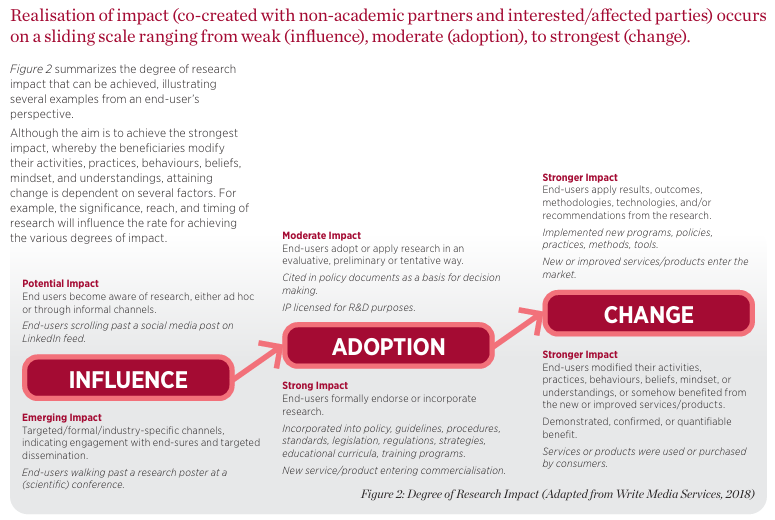10 Elevating Impact: Aligning Curriculum, Operations, Teaching and Engagement (C.O.R.E.) Practices with Western Sydney University’s Strategic Goals and the SDGs
“Nationally, and internationally, the imperative for universities to demonstrate the impact of research beyond academia is burgeoning. Ensuring impactful research and positive societal outcomes is a critical part of Western’s agenda irrespective of external and government requirements. In our efforts to drive social transformation and support a more just and equitable world, we are committed to undertaking research that contributes to the United Nations’ Sustainable Development Goals (SDGs) ” Professor Deborah Sweeney, Senior Deputy Vice Chancellor (Research, Enterprise and Global)
The research showcased in “Sustainable Development Without Borders” aligns with Western Sydney University’s broader strategic commitment to impactful research – co-created with relevant stakeholders and applied in a way that benefits communities and advances sustainable development.
Traditionally, university quality metrics focus on academic performance and knowledge creation, measuring aspects such as publication output, citation scores, awarded grants, and higher degree student completions. While disciplinary practices vary, and pure (fundamental) research remains highly valued, the concept of an “impact agenda” broadens the pursuit of excellence beyond these traditional metrices and emphasises the many benefits of applied research, which addresses real-world scenarios.
Defining Impact at Western Sydney University
(Adapted from Australian Research Council Research Impact Principles and Framework)
Research impact is the contribution that research makes to the economy, society, environment, or culture, beyond the contribution to academic research.
Research engagement is the interaction between researchers and research end-users outside of academia, for the mutually beneficial transfer of knowledge, technologies, methods, or resources.
Research collaboration is engaging with other researchers and research organisations for mutual support and contribution to the conduct of research.
Knowledge exchange is deliberately embedding knowledge for use in a context beyond the researcher’s own sphere.

The pathway toward research impact, represented in this diagram as a progression from influence, through adoption, and finally to demonstrable societal change, is underpinned by engagement.
The “Sustainable Development Without Borders” Thought Leadership seminar series, from which this book is derived, exemplifies the University’s commitment to engagement, showcasing, and sharing the impactful research conducted by its academics. The series provides a platform for researchers to disseminate their work to a broader audience and engage in discussions about critical sustainability challenges.
Aligning Research with the UN Sustainable Development Goals
The research presented in this book aligns strongly with the United Nations Sustainable Development Goals (SDGs), a universal call to action to end poverty, protect the planet, and ensure that all people enjoy peace and prosperity. Each chapter explicitly identifies the specific SDGs it supports, demonstrating the tangible contributions of Western Sydney University’s research toward global sustainable development.
Let’s revisit some of the impactful research highlighted in this book:
Prof Sebastian Pfautsch’s research on urban cooling has led to the development and implementation of practical solutions, such as cool roads, green tracks, and smart irrigation systems, in Western Sydney. His work has also informed policy changes at the local government level, with the Penrith City Council introducing statutory controls on building design and materials to mitigate urban heat.
Dr Jessica Weir’s research on Indigenous fire leadership advocates for making space for Indigenous peoples’ fire leadership in bushfire management practices. Her work highlights the transformative agenda of recognising and respecting Indigenous fire expertise, which has historically been marginalised.
Dr Stephen Healy and Professor Abby Mellick Lopes’ research on the circular economy demonstrates the potential of redirecting organic waste from urban centres to peri-urban farms for composting and soil regeneration. They emphasise the importance of collaborative partnerships involving diverse economic actors, including social enterprises and family farms.
The Hawkesbury Nepean Waterkeeper Alliance, which supports the Hawkesbury-Nepean Platypus Project, exemplifies the University’s commitment to community engagement and collaborative action for waterway health. The discovery of platypus in urban waterways has raised public awareness about the importance of urban biodiversity conservation.
Dr Roger Attwater’s institutional work on climate action at Western Sydney University supports tangible transitions in campus operations, along with living lab opportunities for teaching, research and engagement. The achievement of Carbon Neutrality is underpinned by decarbonisation and adaptation processes which are being developed in collaboration with a range of business areas. Progress towards a target of Climate Positive has been complemented with a commitment to Nature Positive, with emerging integration of nature-based solutions to climate action including biodiversity stewardship, regenerative agriculture, water recycling and carbon farming.
Amplifying Impact: Sharing Knowledge and Inspiring Action
The University’s commitment to disseminating research findings beyond traditional academic circles is evident in:
The “Sustainable Development Without Borders” Thought Leadership series: This series provides a platform for researchers to share their work with a wider audience, fostering dialogue and inspiring action.
The publication of this open textbook: Making the book freely available online increases accessibility and reach, ensuring that the research findings can benefit a global audience.
Engaging with diverse media: The sources highlight the extensive media coverage of the research, particularly Professor Pfautsch’s work on urban cooling, which has reached an estimated annual readership of 1 billion people.
Conclusion
The research presented in “Sustainable Development Without Borders” demonstrates Western Sydney University’s commitment to research that generates real-world impact, and which aligns with its strategic goals of advancing sustainability and resilience, emphasising:
- The direct alignment of research with the UN Sustainable Development Goals
- The generation of tangible benefits for communities and the environment
- The importance of collaborative partnerships and community engagement
- The dissemination of research findings beyond traditional academic boundaries
By showcasing this impactful research, the University aims to inspire further innovation, encourage action towards a sustainable future, and contribute to the global knowledge commons.
References
Western Sydney University. (2023). Making our future: Research impact strategy 2023-26. https://www.westernsydney.edu.au/_data/assets/pdffile/0010/2022598/ResearchImpactStrategy_2023-26.pdf
